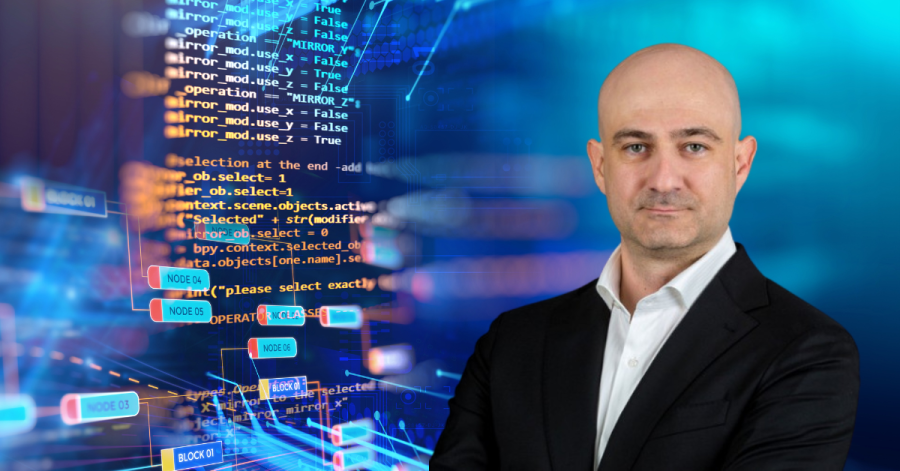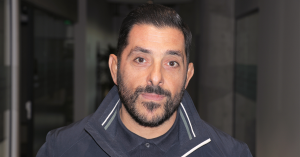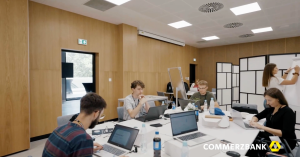In technology, charting a successful career path often means navigating the intricate landscape of the technical interview. These assessments, standing as gatekeepers between aspiration and achievement, are renowned for their formidable challenges. But what if these challenges aren’t hurdles to stumble over but rather opportunities to be seized? Is it possible that within the complexities of technical interviews, there exist invaluable tips and tricks waiting to be unearthed – keys that can help candidates unlock mastery in navigating these evaluations?
The Recursive spoke to Lyuboslav Mitsov, CTO at Updata One to uncover the answers to these questions and more. Mitsov has over 18 years of IT experience across diverse industries, and has traversed nearly every role within the Software Development Life Cycle (SDLC). Having personally conducted a whopping 500 interviews across various companies and job levels, he has nurtured eight teams from scratch.
And while he holds a master’s degree in business administration, he’s all about hands-on technical work with dozens of projects under his belt. Beyond IT, Mitsov dives into self-improvement, mentoring, psychology, and tech innovations. Read on to get his insider tips and tricks that can help you land your next role in the tech industry.
This article is the first part of our “Mastering the Tech Interview” series. Stay tuned for the next ones!
The Recursive: What are some common technical interview mistakes you’ve observed, and how can candidates avoid them?
Lyuboslav Mitsov: In various companies, the technical interview process can significantly differ. I have observed distinct patterns in the types of mistakes candidates commonly make based on the nature of the interview process at a given company.
At companies where the interview process emphasizes theoretical knowledge, a prevalent error I’ve observed is candidates being inadequately prepared on a theoretical front. This oversight can easily be mitigated, as many interviewers tend to rely on a set of standard questions for assessing theoretical knowledge. As a corrective measure, prospective candidates can readily access these questions through a simple online search, facilitating thorough preparation.
Conversely, at companies that prioritize practical skills over theoretical knowledge in their interview process, candidates sometimes struggle to provide tangible evidence of their practical abilities. This issue, although not necessarily a mistake in the traditional sense, can hinder a candidate’s prospects. I strongly recommend that candidates prepare materials, code snippets, or repository links that can be readily presented to interviewers, allowing them to assess the candidate’s practical skills. Additionally, candidates should be prepared to discuss concrete examples of their practical achievements and the methods they employed to achieve them.
Could you share an example of a particularly impressive technical interview performance? What set that candidate apart?
Technical interview performances that stand out significantly vary according to the seniority level of the candidate being evaluated. For junior candidates, the ability to demonstrate proficiency through personal projects that are well-structured and adhere to industry best practices can be highly impressive. Such initiatives reveal a proactive attitude and willingness to learn and grow independently.
In contrast, for candidates interviewing for senior positions, the demonstration of exceptional skills within a specific technology stack (e.g., .NET, JavaScript, PHP, Python) may not be as distinguishing, as a high level of proficiency in these areas is already expected. Rather, what sets apart candidates at this level is the evidence of skills that extend beyond the specific tech stack and are transferable across roles. As an example, a senior developer who exhibits strong technical skills in project management or product ownership—such as the effective maintenance of processes, plans, and specifications—demonstrates an ability to contribute at a higher, strategic level. This can significantly distinguish them from other candidates.
What are some effective ways candidates can demonstrate their problem-solving abilities and technical skills during a technical interview?
Demonstrating problem-solving abilities and technical skills during a technical interview can be achieved by candidates in several ways:
- Solving Coding Challenges
- Explaining their thought process
- Discussing past projects
- Demonstrating debugging skills
- Highlighting soft skills
- Showing their approach to learning
- Asking clarifying questions
Do you prefer candidates who are domain experts or those with a broader range of skills? How can candidates strike the right balance between specialization and versatility?
As a CTO, my primary responsibility is to achieve the company’s objectives within the established budget and timeframe. The choice between hiring domain experts or individuals with a wider skill set is contingent on the specific requirements of a project or product, as well as the deadlines associated with it.
Consider a startup operating under stringent deadlines. In this situation, there is little room for a learning curve; hiring candidates with domain expertise becomes a necessity to ensure rapid progress. It is also worth noting that startups often have larger budgets for talent acquisition, which can alleviate the challenges of finding the right domain experts.
Conversely, for projects with more flexible timelines and constrained budgets, there is greater latitude for hiring individuals who may not have domain expertise but possess a broader range of skills. In this scenario, junior candidates who are capable of learning on the job become a viable option.
The determination of whether to prioritize domain expertise or a broader skill set in prospective candidates is, thus, highly contextual. It depends on factors such as the specific project needs, budgetary considerations, and the timelines for delivery.
As to candidates seeking to strike a balance between specialization and versatility, they should consider a multi-pronged approach, optimizing their skill set to fit both the immediate requirements of their role and the broader demands of the industry. Here are several areas that a candidate can consider:
Foundational Knowledge: Candidates should first focus on acquiring a strong foundation in the fundamentals of their field, whether that is computer science, data science, or another technical domain. This knowledge will serve as the bedrock upon which they can build both specialized and versatile skills.
Domain Expertise: Pursuing specialization in a particular domain can be advantageous, particularly for roles or projects that demand in-depth knowledge and expertise. Candidates should identify areas where they have a natural inclination or interest, and then work on honing their skills and knowledge in those areas. This could involve taking specialized courses, attending industry conferences, or contributing to projects in that domain.
Continuous Learning: The technology landscape is ever-evolving, so candidates should be committed to continuous learning. This can involve keeping up-to-date with the latest technologies and methodologies, which can contribute to versatility. Candidates can do this by following industry news, participating in online forums, and taking online courses on new technologies.
Soft Skills: Versatility is not only about having a wide range of technical skills but also includes soft skills like communication, collaboration, and problem-solving. Candidates can work on developing these skills, which will make them more adaptable and able to work effectively across different domains and teams.
Networking: Engaging with peers, mentors, and industry professionals can help candidates gain insights into trends, best practices, and emerging technologies. This can help them make informed decisions about where to specialize and how to remain versatile.
Applying Skills in Different Contexts: Candidates can practice applying their skills in different contexts, perhaps by contributing to open-source projects, participating in hackathons, or collaborating on projects outside of their primary domain. This can help them adapt their specialized knowledge to different situations, enhancing versatility.
In conclusion, striking a balance between specialization and versatility involves a combination of focused learning, continuous upskilling, and the ability to apply knowledge and skills across different contexts. By taking a proactive approach to their career development, candidates can equip themselves with the right mix of specialized expertise and versatility to meet the diverse demands of the technology industry.
In an era of remote work and distributed teams, how do you adapt your technical interviews to assess a candidate’s remote collaboration skills and self-discipline?
In this era of remote work and distributed teams, assessing a candidate’s remote collaboration skills and self-discipline is essential. To do this effectively, I adapt my technical interview process in several ways.
I incorporate questions that assess a candidate’s prior experience with remote work and how they have navigated the unique challenges it presents. I inquire about their approaches to maintaining productivity, overcoming feelings of isolation, and fostering effective communication with remote colleagues.
I use tools that facilitate real-time collaborative coding sessions, simulating a remote work environment. This allows me to assess their technical skills while also evaluating their ability to communicate and collaborate effectively in a remote setting.
I pose hypothetical situations that involve remote collaboration and self-discipline, asking how they would approach and handle these scenarios. Their responses can provide insights into their ability to navigate the complexities of remote work.
I often assign take-home projects that simulate real-world tasks. This helps assess a candidate’s self-discipline and ability to work independently. I review their work for code quality, problem-solving approach, and documentation. Their ability to meet deadlines also reflects their time-management skills.
I conduct reference checks with previous employers or colleagues, specifically asking about their remote work habits, collaboration skills, and self-discipline. This provides valuable third-party insights into their suitability for remote work.
I inquire about the candidate’s preferred tools and set up for remote work, including how they manage their time, tasks, and communication. Their answers can give insights into their level of adaptability, organization, and familiarity with tools that facilitate remote work.
If feasible, I might consider offering a candidate a short-term contract or a trial period before making a full-time offer. This allows both the candidate and the company to assess the fit in a remote work setting, giving a more accurate sense of how well they can adapt and contribute to this context.
Considering the collaborative nature of tech projects, how do you assess a candidate’s ability to work effectively in a team and communicate complex technical concepts with clarity?
Assessing a candidate’s ability to work effectively within a team and to clearly communicate complex technical concepts is crucial, particularly in a field where collaboration is key. I employ a multi-faceted approach to evaluate these skills, taking into account the candidate’s experience level:
Behavioral Questions: I pose questions designed to uncover their past experiences with team-based projects. I ask them to share examples of successful collaborations, how they’ve resolved conflicts within a team, and how they have communicated complex concepts to both technical and non-technical colleagues.
Role-specific Communication Assessment: It’s important to note that the level of communication skill needed varies depending on the seniority of the role. Junior candidates may only need to effectively communicate with their immediate team, while senior candidates may need to articulate concepts to stakeholders, cross-functional teams, or even externally at conferences and panels. In the interview, I tailor my questions to assess their communication skills according to the specific requirements of the role they’re applying for.
Group Interviews or Panel Interviews: Incorporating group interviews or panel interviews into the hiring process allows me to observe the candidate’s interpersonal skills in a team setting. I pay attention to their ability to listen, their willingness to consider other perspectives, and how effectively they articulate their thoughts.
Diagram Exercise: I often ask candidates to create diagrams of their current projects or any other projects they are comfortable discussing. They are then required to explain the diagram in detail. This exercise enables me to evaluate their ability to visually represent complex systems and concepts, and assess their capacity to articulate these concepts verbally. This is especially useful for roles that require interaction with cross-functional teams, as it demonstrates the candidate’s ability to make technical information accessible and understandable to a wider audience.
Technical Presentations: For more senior candidates, I may request that they prepare and deliver a brief presentation on a technical topic either of their choice or chosen by me. This helps me assess their ability to convey complex ideas clearly and confidently to a larger audience, which may be a vital skill for roles that involve leadership or interfacing with external stakeholders.
Collaborative Problem Solving: I present the candidate with a complex problem and ask them to work on a solution collaboratively with members of our team. This allows me to directly observe their teamwork and communication skills in action.
In your opinion, what sets apart a good technical interview from a great one?
I have had the privilege of conducting numerous technical interviews throughout my career. While many of these interviews have been good, there are a select few that stand out as truly great. So, what sets apart a good technical interview from a great one?
A good technical interview typically involves a candidate who demonstrates the necessary skills and qualifications for the job. They answer questions correctly, show a basic understanding of the technologies involved, and meet the minimum requirements for the position. However, these interviews often lack depth and do not go beyond the surface level. The candidate may answer questions without elaborating or providing examples, and the conversation may feel more like a checklist than a meaningful discussion.
In contrast, a great technical interview is characterized by a candidate who goes above and beyond in showcasing their expertise, enthusiasm, and fit for the role.
Great candidates ask clarifying questions to ensure they fully understand the problem at hand. This shows that they are thoughtful, detail-oriented, and genuinely interested in finding the best solution.
Instead of waiting to be prompted, great candidates proactively share relevant experiences, projects, and insights that demonstrate their capabilities. They take the initiative to showcase their skills and contributions.
A great candidate also exudes a palpable passion for the job or domain. They may express excitement about the company’s mission, the challenges of the role, or the potential impact of their work. This hunger is often a strong indicator of future dedication and motivation.
In a great interview, there is often a moment that leaves a lasting impression—a unique insight, a creative solution, or an exceptional display of technical acumen. This “wow effect” is what sets the candidate apart from others and makes them memorable.
Finally, great candidates engage in a two-way conversation, actively listening and responding thoughtfully. They articulate their thoughts clearly, making it easy to follow their thought process and understand their approach.
In conclusion, while a good technical interview may check all the boxes, a great interview leaves a lasting impression and creates a sense of excitement about the potential of the candidate. It is characterized by a candidate’s proactive approach, hunger for the job, ability to create a “wow effect”, and strong engagement and communication skills. These are the candidates who not only meet the requirements but also bring something special to the table, making them stand out as exceptional additions to the team.
As a leader in tech, how do you see technical interviews evolving in the next five years to keep up with the changing industry landscape?
In the next five years, I envision technical interviews evolving significantly to keep up with the rapidly changing industry landscape. As a leader in tech, here are some trends I expect to see:
Greater Focus on Soft Skills: As tech projects increasingly require cross-functional collaboration, communication, and adaptability become more important. I expect technical interviews to place greater emphasis on assessing these soft skills, in addition to technical competencies.
Diversity and Inclusion: As the tech industry continues to emphasize diversity and inclusion, interview processes will evolve to minimize unconscious bias and ensure a more equitable evaluation of candidates from diverse backgrounds. This could involve structured interviews, blind assessments, and diverse interview panels.
Remote Work Adaptation: With the rise of remote work, technical interviews will likely place more emphasis on skills required for successful remote collaboration, such as effective communication, self-discipline, and time management. We may see an increased use of remote assessment tools and virtual interviews.
Project-based Assessments: Rather than solely relying on traditional interview questions, I expect an increased focus on project-based assessments. These assessments can provide a more realistic evaluation of a candidate’s skills in a real-world context, including their problem-solving, coding, and collaboration abilities.
Adaptability to New Technologies: As the tech landscape continues to evolve, the ability to quickly adapt to new technologies will become more crucial. I foresee interviews increasingly assessing candidates’ ability to learn and adapt, rather than just their proficiency in specific technologies.
More Candidate-Centric Interviews: To attract top talent, the interview process will need to be more candidate-centric. This includes providing a positive interview experience, offering timely feedback, and showcasing the company’s culture and values. An interview should be a two-way conversation where both parties evaluate fit.
Data-Driven Decision-Making: The use of data analytics in the hiring process will likely increase. This could involve using AI and machine learning to analyze candidate responses, predict their performance, and assist in decision-making. However, it’s essential to approach this trend with caution, considering the ethical implications and potential biases in AI systems.
Emphasis on Lifelong Learning: With the rapid pace of change in the tech industry, the importance of lifelong learning cannot be understated. I expect technical interviews to assess a candidate’s commitment to continuous learning and their ability to stay updated with the latest industry trends.
In summary, I anticipate that technical interviews will evolve to be more comprehensive, inclusive, and adaptable to the changing industry landscape. They will place greater emphasis on a broader range of skills, adapt to new ways of working, and focus on providing a positive and fair experience for candidates.








